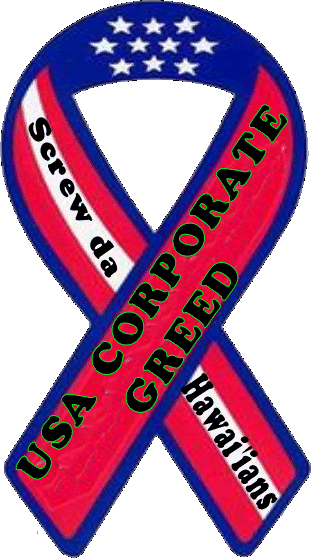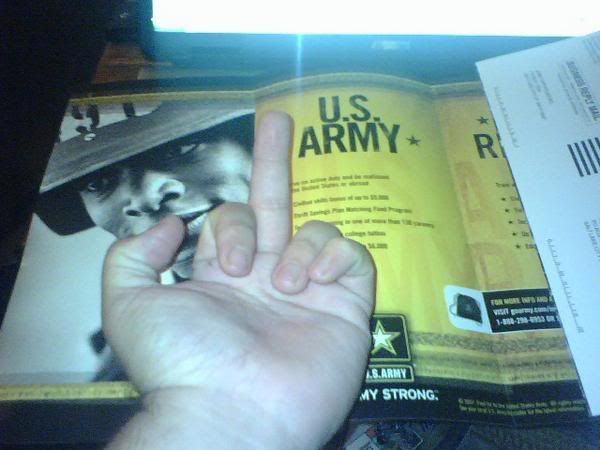
April 23, 2010
Why soldiers get a kick out of killing
By John Horgan

 Do some soldiers enjoy killing? If so, why? This questionis thrust upon us by the recently released video ofU.S. Apache helicopterpilots shooting a Reuters cameraman and his driver in Baghdad in 2007.Mistakingthe camera of the Reuters reporter for a weapon, the pilotsmachine-gunned thereporter and driver and other nearby people.
Do some soldiers enjoy killing? If so, why? This questionis thrust upon us by the recently released video ofU.S. Apache helicopterpilots shooting a Reuters cameraman and his driver in Baghdad in 2007.Mistakingthe camera of the Reuters reporter for a weapon, the pilotsmachine-gunned thereporter and driver and other nearby people.
The most chillingaspect ofthe video, which was made public by Wikileaks, is the chatter between two pilots,whose names have not been released. As Elizabeth Bumiller of TheNew York Times put it, the soldiers "revel in their kill.""Look atthose dead bastards," one pilot says. "Nice," the other replies.
Theexchange reminds me of a Timesstory from March 2003, during the U.S. invasion of Baghdad. Thereporterquotes Sgt. Eric Schrumpf, a Marine sharpshooter, saying, "We had agreat day.We killed a lot of people." Noting that his troop killed an Iraqi womanstandingnear a militant, Schrumpf adds, "I'm sorry, but the chick was in theway."
Does the apparent satisfaction—call it the Schrumpf effect—that some soldiers take in killing stem primarily from nature ornurture?Nature, claims RichardWrangham, an anthropologist at Harvard University and an authorityonchimpanzees. Wrangham asserts that natural selection embedded in bothmalehumans and chimpanzees—our closest genetic relatives—an innatepropensity for"intergroup coalitionary killing" [pdf],in which members of one group attack members of a rival group. Malehumans"enjoy the opportunity" to kill others, Wrangham says, especially ifthey runlittle risk of being killed themselves.
Several years ago, geneticistsat VictoriaUniversity in New Zealand linked violent male aggression to avariant of agene that encodes for the enzyme monoamine oxidase A, which regulatesthefunction of neurotransmitters such as dopamine and serotonin. Accordingto theresearchers, the so-called "warrior gene" is carried by 56 percent ofMaori men,who are renowned for being "fearless warriors," and only 34 percent ofCaucasianmales.
But studies of World War II veterans suggest that very fewmen areinnately bellicose. The psychiatrists Roy Swank and Walter Marchandfound that98 percent of soldiers who endured 60 days of continuous combat sufferedpsychiatric symptoms, either temporary or permanent. The two out of 100soldierswho seemed unscathed by prolonged combat displayed "aggressivepsychopathicpersonalities," the psychiatrists reported. In other words, combat didn't drive these men crazybecause theywere crazy to begin with.
Surveys of WWII infantrymen carried outby U.S.Army Brig. Gen. S.L.A. Marshall found that only 15 to 20 percent hadfired theirweapons in combat, even when ordered to do so. Marshall concluded thatmostsoldiers avoid firing at the enemy because they fear killing as well asbeingkilled. "The average and healthy individual," Marshall contended in hispostwarbook MenAgainst Fire, "has such an inner and usually unrealizedresistancetowards killing a fellow man that he will not of his own volition takelife ifit is possible to turn away from that responsibility…At the vital point hebecomes a conscientious objector."
Critics have challengedMarshall'sclaims, but the U.S. military took them so seriously that it revampeditstraining to boost firing rates in subsequent wars, according to DaveGrossman, aformer U.S. Army Lieutenant Colonel and professor of psychology at WestPoint.In his 1995 book OnKilling, Grossman argues that Marshall's results have beencorroboratedby reports from World War I, the American Civil War, the Napoleonic warsandother conflicts. "The singular lack of enthusiasm for killing one'sfellow manhas existed throughout military history," Grossman asserts.
Thereluctance of ordinary men to kill can be overcome by intensifiedtraining,direct commands from officers, long-range weapons and propaganda thatglorifiesthe soldier's cause and dehumanizes the enemy. "With the properconditioning andthe proper circumstances, it appears that almost anyone can and willkill,"Grossman writes. Many soldiers who kill enemies in battle are initiallyexhilarated, Grossman says, but later they often feel profound revulsionandremorse, which may transmute into post-traumatic stress disorder andotherailments. Indeed, Grossman believes that the troubles experienced bymany combatveterans are evidence of a "powerful, innate human resistance towardkillingone's own species."
In other words, the Schrumpf effect isusually aproduct less of nature than of nurture—although "nurture" is an odd termfortraining that turns ordinary young men into enthusiastic killers.
ABOUTTHE AUTHOR
 John Horgan, a former Scientific American staffwriter, directs the Centerfor ScienceWritings at Stevens Institute of Technology. (Photo courtesy of SkyeHorgan.)
John Horgan, a former Scientific American staffwriter, directs the Centerfor ScienceWritings at Stevens Institute of Technology. (Photo courtesy of SkyeHorgan.)
Image: iStockphoto/ninjamonkeystudio
Further Reading
Robert Karl Stonjek




Comments